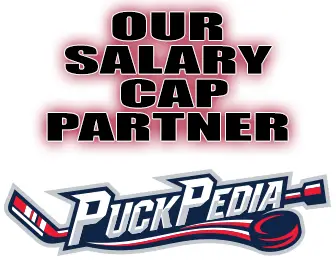Colorado Avalanche
McDavid’s Contract Hold-Up Could Shake the Entire NHL
Connor McDavid remains the most talked-about player in hockey, and for good reason. The Edmonton Oilers superstar is approaching the end of his current contract, yet he has not committed to an extension. He spoke on Wednesday at the Team Canada Olympic orientation camp, and almost immediately, media scrutiny, fan speculation, and insider analysis converged into one central question: what will it take for McDavid to sign, and where will he play if he doesn’t?
Most observers — including a wide range of fans on social platforms — believe the most likely outcome is a 3–4 year deal with Edmonton, possibly finalized sometime before the regular season starts. However, that’s no longer a given based on McDavid’s recent comments, in which he stated that he has no preference as to when this extension is completed. If it drags into the start of the season, it drags into the start of the season.
What Is Going to Change for McDavid?
He’s taking his time, and McDavid wants the flexibility that comes with waiting. Yet, as several commentators noted, “if he hasn’t seen enough to decide to sign, I’m not sure what will change” between now and October. The Oilers’ roster, goaltending situation, and coaching staff remain largely the same, leaving McDavid in the same position he was at the end of last season.

The potential market for McDavid is unprecedented. Fans have compared him to Shohei Ohtani in baseball: an athlete whose sheer talent guarantees ticket sales, jersey revenue, and national attention regardless of team colors. Some argue that any team could give him whatever salary he wants without hesitation. Others, more realistically, point out that while McDavid is coveted, only a handful of organizations could realistically accommodate him under the salary cap without dismantling their core. Hypothetical destinations like the New York Rangers, Colorado Avalanche, or even the Florida Panthers would require major trades and roster sacrifices. A move of that magnitude would force teams to choose between acquiring a generational talent and maintaining organizational depth.
Related: Insider’s Take on McDavid’s Comments: Brutal News for Oilers
What questions can they answer today that the Oilers can’t?
What About McDavid’s Salary?
Salary considerations also weigh heavily. While some fans suggest that McDavid could demand 20% of a team’s cap space, historical precedent shows that even max contracts rarely reach that proportion. Current contracts like Leon Draisaitl’s consume about 14–15% of the cap, demonstrating the financial balancing act teams face. Many believe McDavid is likely to opt for a “reasonable” contract — enough to assert his status as the league’s best player, but not so large as to handcuff a team’s roster construction.
Clearly, salary isn’t the only factor influencing McDavid’s decision. Despite a strong roster consisting of Leon Draisaitl, Evan Bouchard, Zach Hyman, and others, it’s not perfect, and goaltending remains the most significant question mark. Stuart Skinner and Calvin Pickard form the current tandem, but questions were being asked if that duo was solid enough. McDavid’s pause on an extension will fuel speculation that the answer is no.
Do the Oilers need to acquire a top-tier goalie? Will he not sign again until they do? Cap space, available assets, and timing complicate matters. The Oilers can theoretically afford a high-end netminder, but doing so could require sacrificing depth or prospects — a gamble that may or may not satisfy McDavid. No amount of money being paid to him will change his feelings; however, he’s directly linked to what kind of goalie the team can acquire if he doesn’t take as much as he theoretically could.
Would he feel the same way with another team? Or, is he only willing to do this in Edmonton, assuming the discount he takes can secure them what they need?
Other external factors also play a role. The allure of playing in a major market, with an elite goalie and proven coaching staff, could tempt McDavid if Edmonton fails to address its weaknesses.
Most analysts agree that he will likely remain in Edmonton. As of now, he’s got one more season on his current deal. Provided the team demonstrates a clear commitment to building a better team than the one that went to the Cup Final two years in a row, he’ll sign again.
How that impacts the rest of the NHL if he doesn’t feel that way could send a seismic shift throughout the league.
Next: Podcast Ties Controversial Goalie to Oilers in New Update
























